

This section of Company Setup is where the Tax and Service Charge Rules (for the Company) are set up.
The Company Tax & Service Charge Rules work in conjunction with:
in order to determine the appropriate Taxation and/or Service Charge Calculations.
It is important to note that the Company Tax & Service Charge Rules form the list of 'Rules' that are referenced (and 'Activated' Component-by-Component) by both the Client & Item Tax & Service Charge Rules setups.
Click here for a description of Tax & Service Charge Account Effects.
The Abacus 21 System allows for multiple Taxes and multiple Service Charges components (up to twelve per Rule) to be 'applied' against each element of a transaction.
Taxes and Service Charges can be 'combined' into Groups (or Rules). Each Tax/ServiceCharge Group can have up to twelve (12) respective Taxes or Service Charges components affiliated with it -- each with its own respective calculation methodology.
The example below illustrates a 'Standard' Tax & Service Charge Group:
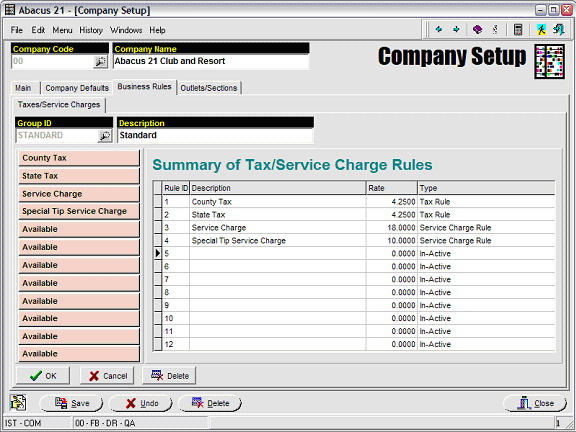
Group ID - a unique Code for the Tax/ServiceCharge Rule (combination).
Group Description - a Description of the Tax/ServiceCharge Group.
The twelve Buttons on the left are used to setup up the individual Tax Calculation and/or Service Charge Calculation Rules components that are to associated with Business Rule.
This 'Standard' Tax & Service Charge 'Group' combination in the above example involves four individual components of Taxation and Service Charge calculation that interplay together:
County Tax
State Tax
Service Charge
Special Tip Service Charge
The respective Tax and Service Charge calculations for each of the components are 'applied' (used in the calculation sequence) from top to bottom.
Clicking on the 1st of the twelve (component) Buttons on the left-side (in this case the 'County Tax' component) invokes the following screen:
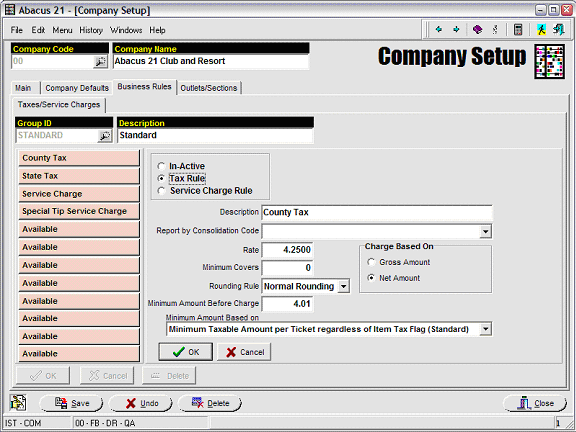
Nature of this Business Rule component: In-Active, Tax Rule, or Service Charge Rule.
Component Description: Description of the particular Tax or Service Charge component.
Report by Consolidation Code: Reserved for future use.
Rate: The 'rate' (percentage) to be used in the Tax or Service Charge calculation for this component.
Minimum Covers: The minimum number of 'Covers' at a Table before the Tax or Service Charge 'kicks in'.
This is pertinent to Food/Beverage situations only.
Rounding Rule: Always Round Up, Normal Rounding, No Rounding.
Minimum Amount Before Charge: The dollar amount of that the base* Transaction Amount (that the calculation will be applied to) has to be before the Tax or Service Charge 'kicks in'.
* Minimum Amount Based On:
Minimum Taxable Amount per ticket regardless of Item Tax Flag (Standard)
Minimum Taxable Amount per Items Total with Like Item Tax Flags
Minimum Taxable Amount per Ticket ALL Items must have Like Item Tax Flag
Please see Item Tax & Service Charge for further details on Item Tax Flags.
Charge Based On: Gross or Net (Amount)
Clicking on the 2nd of the twelve (component) Buttons on the left-side (in this case the 'State Tax' component) invokes the following screen:
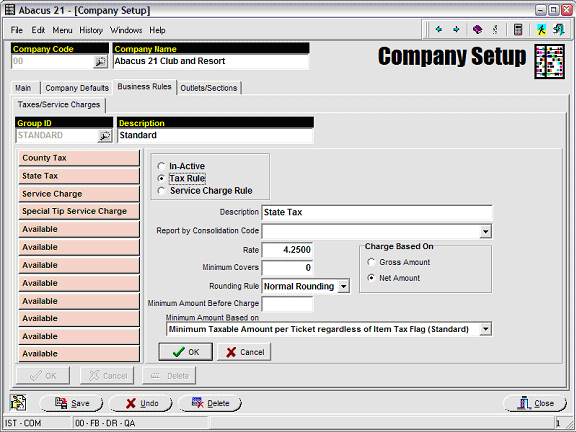
Clicking on the 3rd of the twelve (component) Buttons on the left-side (in this case the 'Service Charge' component) invokes the following screen:
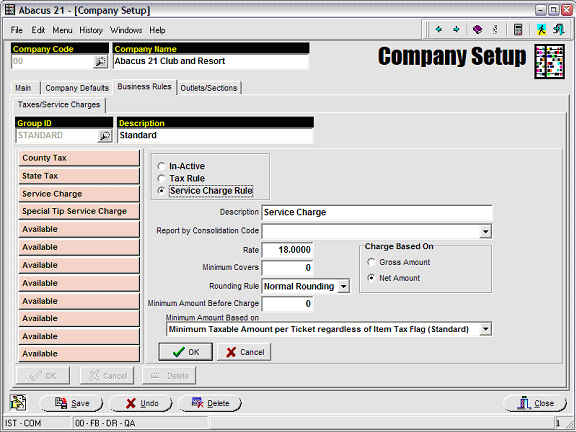
Clicking on the 4th of the twelve (component) Buttons on the left-side (in this case the 'Special Tip Service Charge' component) invokes the following screen:
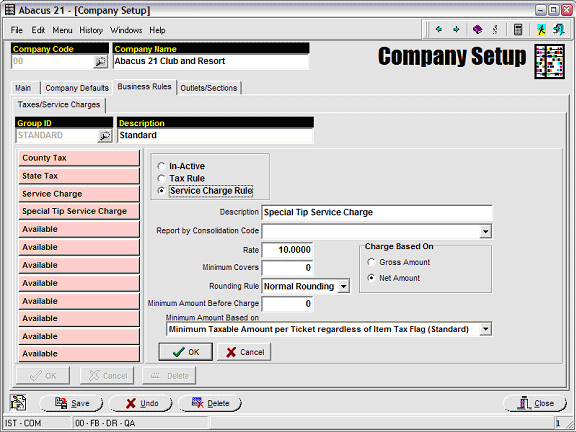
Other Tax & Service Charge Business Rule Examples -
The following is a very simple Sales Tax Business Rule:
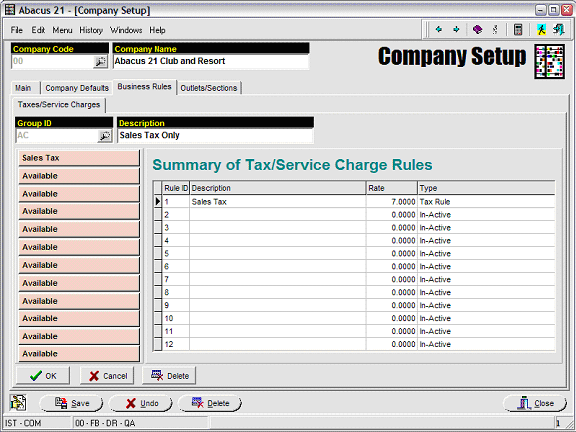
The screen below illustrates the setup for the 'Sales Tax' component of the above Business Rule:
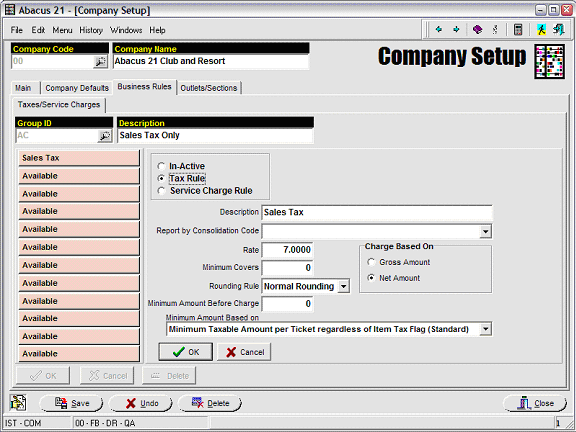
The following is an example of relatively common Sales Tax and Service Charge Business Rule:
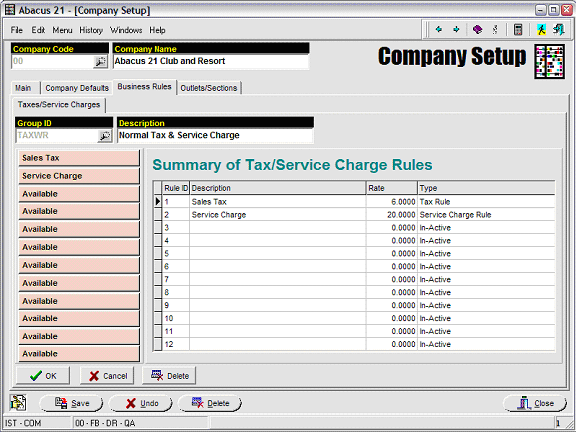
This is the 'Sales Tax' Component for the above Business Rule example:
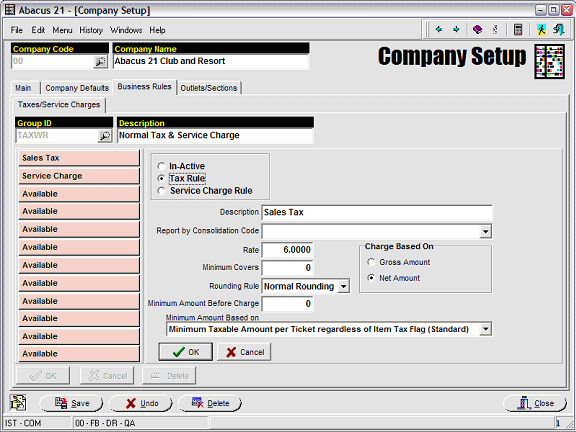
This is the 'Service Charge' Component for the above Business Rule example:
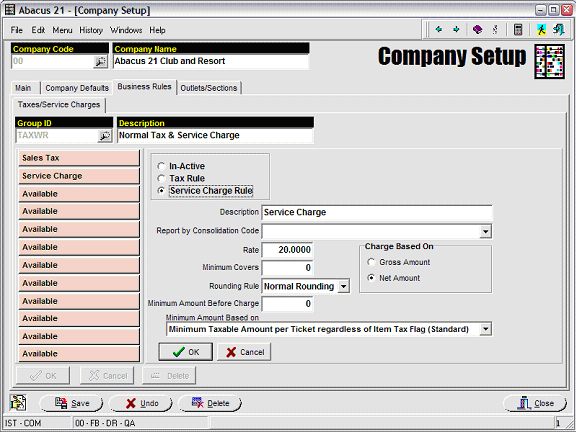
The following is 'Hotel Tax' example of another Tax & Service Charge Business Rule:
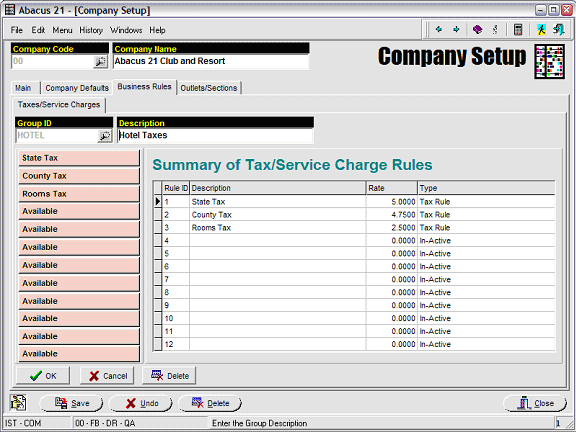
Tax & Service Charge Accounting Effects -
The General Ledger Account References associated with Tax(es) and Service Charge(s) are determined by establishing Distribution Codes of a particular Type:
Tax
Service Charge
Below is the setup of a Tax-related Distribution Code:
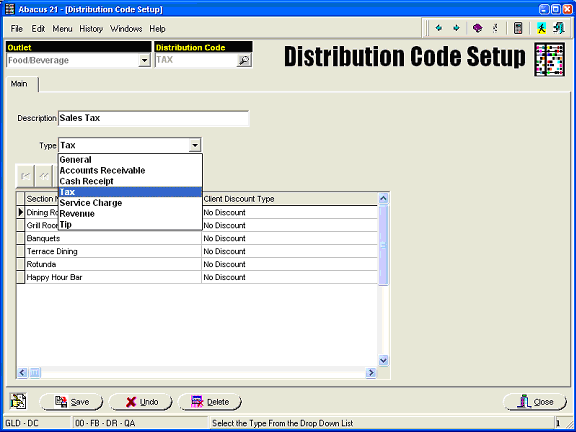
Note that the Distribution Code does not literally have to be defined as 'TAX' -- as in this example -- and will, in fact, be different if different G/L Account postings apply for different kinds of Taxes.
Below is a screen that shows the G/L Account assignment to this particular Tax Distribution Code:
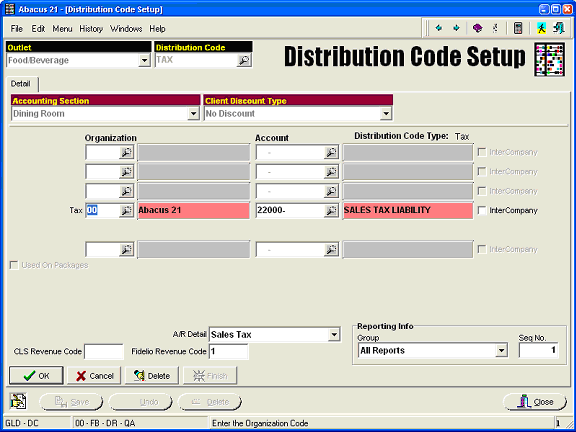
Note that the G/L Account for a particular Tax Distribution Code can differ per Section -- since this setup is per-Section.
The screen below shows one of the Company Tax Setups that reference this Tax Distribution Code (and, hence, its associated G/L Account reference):
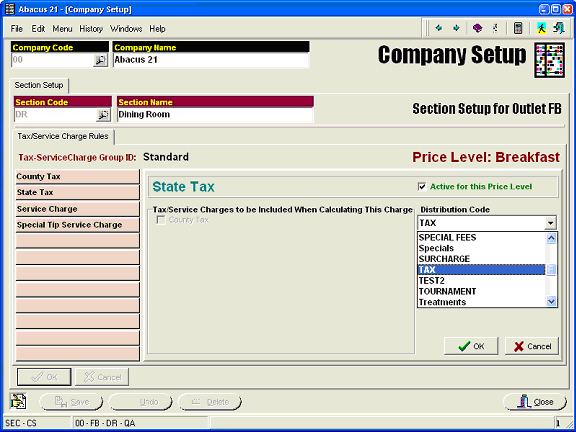
Below is a screen illustrating the setup of a Service Charge Distribution Code (in this example, *SERV):
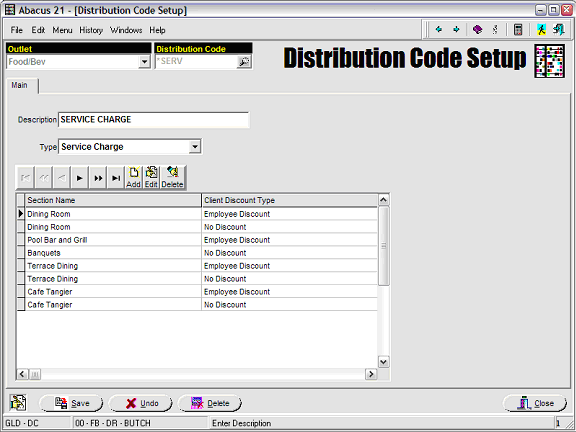
Notice that the Type is 'Service Charge'.
And, below, an illustration of one of its Account posting setups:
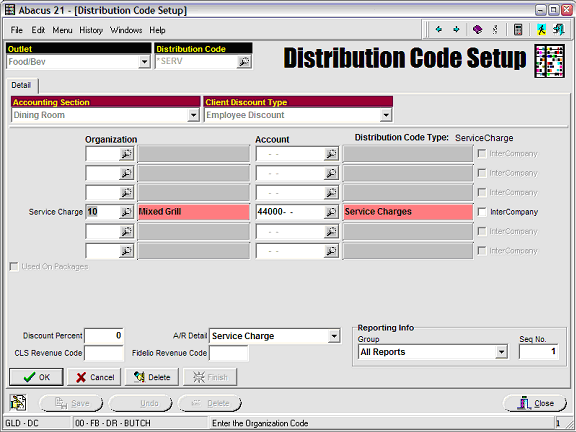
Click here for more information on Distribution Code setups.
Checklist for tracking down a problem with Taxes or Services Charges -
The Tax & Service-Charge Rules for Dues are set up by the Item Tax & Service-Charge Rules for whatever Section your Dues are set up in.
Each of the Charge Types has an Item linked to it, so you should Quick-Jump into the CDM Menu, go to Charge-Type Setup, and (for each of the Dues you have issues with) call it up and check the Item code associated with it.
Then go to Item Maintenance, call up the Item and go to Section info to check what the Tax & Service-Charge Rules is. Then Quick-Jump to IN5 and into the Setups... and correct the Tax & Service-Charge Rules accordingly.